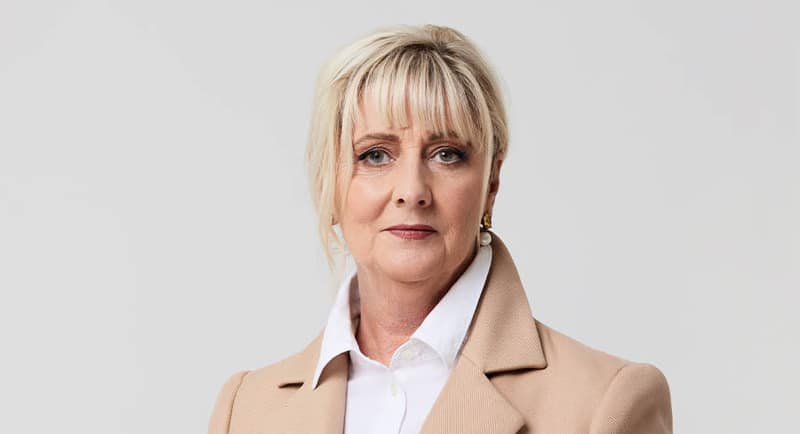Between 1980 and 1985, in what came to be known as the Family Court Murders, four murders, two shootings, and five bombings were carried out by one man – Leonard Warwick. Sparked by a custody feud with his ex-wife Andrea Blanchard, the newly established Family Court system was his main target.
Despite all the evidence against him, Warwick was able to elude persecution for decades.
Walkley award winning crime journalist and author, Debi Marshall, has spent a decade now investigating and reporting on the case. Her four-part documentary series, The Family Court Murders, is set to air Tuesday, 10 May at 8.30pm on ABC and iview.
Mediaweek spoke to Marshall about the case ahead of the series launch.
Marshall says that the timing for this documentary series lined up perfectly.
“I started looking at the case in 2012, the book came out in 2014. I won the Walkley in 2015 for the story that I did, and the book was shortlisted for a Walkley as well. Then he was arrested and charged, he was convicted in 2020. The timing was perfect.
“It takes a couple of years to get it all together, so here we are. We’re really proud of this series. It’s been an enormous amount of work with its challenges too, as you can imagine, filming in the middle of Covid. But everyone’s been amazing through it, particularly our participants who have all just stood as one and agreed to be involved.”
Filming in the middle of Covid provided a whole new set of hurdles, but Marshall says that it’s through the persistence and resolve of the whole team that the show will be going to air.
“There wasn’t anything that I as the host and writer and producer was particularly concerned with, but behind the scenes, they were the proverbial ducks paddling furiously. It was very difficult. It was very difficult and it’s a testament to the team that this series is going to air on Tuesday.
“It would have been really easy at times to go, this is too hard. Let’s wait until this pandemic ends and we’ll pick it up again. But nobody did that. Nobody packed it in. And that includes the participants who were all, as I said, fantastic.”
When NSW Supreme Court Justice Peter Garling handed down his sentencing of Leonard Warwick, he found him guilty on six of seven counts. The one count Warwick was found not guilty of was the murder of Andrea Blanchard’s brother, Stephen Blanchard.
“We don’t assert that Justice Garling got it wrong – he was meticulous in his findings, absolutely meticulous,” says Marshall.
“What we did was we went back and we investigated the Blanchard murder through the lens of a criminal profiler, Kris Illingsworth. She’s brilliant. She’s a former New South Wales detective of decades standing, and she’s also FBI trained in criminal profiling. So we go back in and look through her lens and through mine, and we really look at that Blanchard murder. I won’t give the game away about what we found, but the results are absolutely fascinating.
“What does it take to overturn a not guilty verdict and to get something back to trial? Fresh and compelling new evidence. Do we find that? Well, you’ll have to watch the series.”
Marshall has a shared connection with many of the victims. Speaking at the end of the first episode, she recounts how when she was younger, her own partner was murdered.
“It gives me the gift of understanding – I don’t understand what they’re going through, how could I? But I understand grief at an absolutely primal level having lived it for years. My partner was missing for seven months, they found him skeletal in the bush. He’d been shot in the back. I searched for him relentlessly.
“That’s the first part, the second part comes when you have that emptiness after the funeral. That’s the part that these victims in the Family Court Murders lived with for decades.
“For me, it gave me empathy that maybe I hadn’t had prior to my own partner being murdered; that I may not ever have developed as a journalist. There’s always a rainbow somewhere – everything happens for a reason, as the sign says on my desk.”
While Warwick’s crimes were committed in the 1980s, today one woman a week is murdered by her current or former partner in Australia. Marshall says that she hopes people finding themselves in similar situations take a message of hope from the series.
“It’s a really sad story, but it ends on a triumphant note. I think that it’s really important that we give people hope. The women sitting out there trapped in violent relationships – there is hope, and there is a way out. I think our series shows that in the end.”
–
Lifeline: 13 11 14
National sexual assault and domestic violence hotline: 1800 RESPECT
